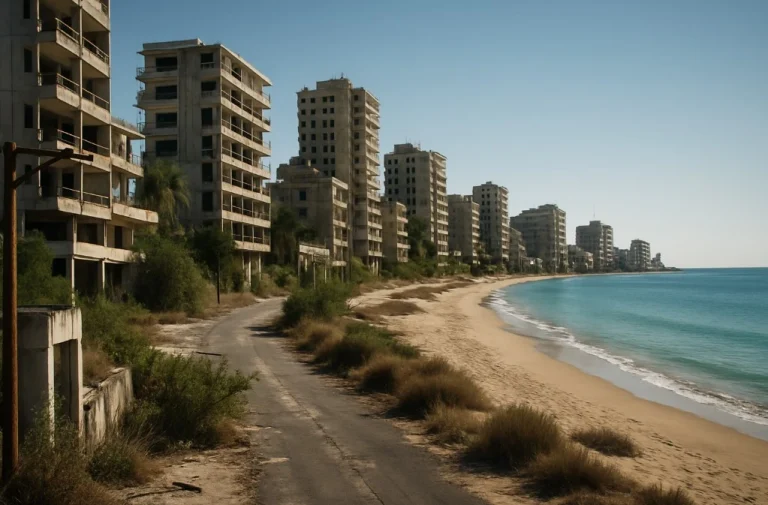Why did far-right activist Tommy Robinson real name Stephen Yaxley Lennon find himself behind bars yet again? The answer isn’t rooted in political bias or censorship, as some of his supporters claim.
Instead, it lies in a consistent and well-documented pattern of legal defiance, specifically his disregard for court injunctions and repeated contempt of court.
This case, like many before it, reflects the UK’s robust commitment to the rule of law and the boundaries placed around public discourse, especially when it conflicts with judicial fairness and individual rights.
Who Is Tommy Robinson and Why Does He Attract Legal Attention?
Stephen Yaxley-Lennon is a well-known figure in British media and politics, often characterised by his populist rhetoric and far-right activism.
He gained notoriety after founding the English Defence League (EDL) in 2009, an organisation criticised for promoting anti-Islam sentiments under the guise of patriotism and community protection.
Over the years, Robinson has built a following by claiming to speak on behalf of “ordinary people” silenced by political correctness.
However, his activism has frequently crossed legal lines, resulting in numerous convictions. These have included fraud, assault, public order offences, and multiple cases of contempt of court.
Despite presenting himself as a free speech campaigner, the courts have often found his actions to be unlawful and in breach of fundamental legal principles.
What Sparked the Legal Dispute Between Robinson and Jamal Hijazi?

Image – Source
In 2018, a disturbing video went viral showing a 15-year-old Syrian refugee, Jamal Hijazi, being assaulted at Almondbury Community School in Huddersfield.
The footage triggered national outrage and garnered widespread sympathy and financial support for the boy and his family.
Headlines painted Hijazi as a victim of xenophobic bullying in a country that had promised him safety from the horrors of war.
Robinson, however, offered a counter-narrative. He posted two videos on Facebook in November 2018, accusing Hijazi of previously attacking schoolgirls and threatening classmates with violence.
These claims were unsubstantiated and, as it would turn out, defamatory.
In 2021, Hijazi brought a libel action against Robinson, and the High Court found in Hijazi’s favour.
The court ruled that Robinson’s allegations were false, his witnesses unreliable, and his defence completely lacking in credibility. He was ordered to pay £100,000 in damages plus legal fees.
More significantly, a High Court injunction was issued, prohibiting Robinson from repeating or making similar defamatory allegations about Hijazi.
What Is a High Court Injunction and Why Was It Imposed?
A High Court injunction is a legal order that restrains individuals from carrying out specific acts in this case, repeating false and defamatory allegations.
In libel cases where the court determines that a claim is untrue and damaging, an injunction serves to prevent further reputational harm.
The injunction imposed on Robinson was standard practice following a successful libel claim. It did not restrict his broader political expression or criticism of government policies. Rather, it was narrow in scope, applying specifically to the untruths he had told about Hijazi.
Initially, Robinson complied with the injunction. However, that compliance did not last.
What Did Robinson Do to Breach the Injunction?

Image – Source
Robinson began violating the injunction in February 2023. He appeared in a series of online interviews and promoted a self-produced film titled Silenced, which again repeated the false claims about Hijazi.
These appearances were hosted on platforms including YouTube, X (formerly Twitter), and in interviews with figures such as Gareth Icke, Gavin McInnes, and Emerald Robinson.
He not only disseminated the prohibited content but escalated his defiance. On 27 July 2024, just days before he was ordered to appear for a court hearing, Robinson organised a public event in Trafalgar Square.
At the rally, he publicly broadcast the Silenced film, directly challenging the court’s authority. The following day, he failed to attend the scheduled hearing and fled the UK, prompting the issuance of an arrest warrant.
What Was the Legal Response to These Breaches?
The Solicitor General filed two applications for contempt of court first in June 2023 and again in August 2024 alleging Robinson committed a total of 10 breaches of the 2021 injunction. These included:
- Publishing the Silenced film on YouTube and X
- Broadcasting the film during a public rally
- Repeating allegations during online interviews
Robinson was arrested on 24 October 2024 and appeared in court on 28 October 2024. He admitted to all 10 breaches.
The court proceedings were presided over by Justice Johnson in the case HM Solicitor-General v Yaxley-Lennon [2024] EWHC 2732 (KB).
In his judgment, Johnson J emphasised that contempt of court is not about political ideology but about upholding the rule of law.
He criticised Robinson for demonstrating no remorse, no contrition, and for repeatedly acting with what the court described as “sophisticated defiance” of legal orders.
What Sentence Did the Court Impose and Why?
Robinson was sentenced to 18 months in prison, broken down into two elements:
| Sentence Component | Purpose | Length |
| Punitive | To punish Robinson for past breaches | 14 months |
| Coercive | To encourage future compliance | 4 months |
| Adjustment | 10% reduction for guilty plea (late) | – |
| Total Sentence | 18 months (less 3 days) |
The court found that Robinson had shown a deliberate, sustained campaign of non-compliance. His actions were not isolated or impulsive but reflected a strategic attempt to undermine the judiciary.
Notably, Johnson J found several aggravating factors:
- The breaches occurred over an extended period
- Robinson was not under external pressure to commit them
- He had a history of prior contempt convictions
- His actions appeared designed for maximum exposure and disruption
The judge remarked that “all his actions suggest that he regards himself as being above the law.”
Why Was Tommy Robinson Released Early?

Image – Source
Though sentenced to 18 months in October 2024, Robinson was released in May 2025—approximately halfway through his term.
This early release followed an application to “purge contempt,” a legal process in which the offender demonstrates willingness to comply with the court’s order.
According to his legal team, Robinson had taken steps to remove the Silenced film and pledged to avoid repeating the allegations.
Although the judge noted Robinson’s lack of genuine remorse, he acknowledged a “change in attitude” and accepted the assurance as credible.
As a result, the four-month coercive part of the sentence was removed, and Robinson walked free from HMP Woodhill.
Is This the First Time Robinson Has Been Found in Contempt of Court?
No. Robinson has been found in contempt on at least three other occasions:
- 2017 – Contempt for filming outside Canterbury Crown Court
- 2019 – Contempt related to reporting restrictions in a grooming gang trial
- 2022 – Further violations of court orders
Each instance involved breaches of reporting restrictions or injunctions intended to preserve judicial integrity.
Is Contempt of Court a Criminal Offence in the UK?
Contempt of court is technically a civil offence, but it can carry criminal-like penalties. The key purpose is to ensure compliance with court orders and protect the administration of justice.
Acts that may constitute contempt include:
- Disobeying a court injunction
- Publishing restricted material during active trials
- Refusing to give evidence when ordered
- Taking photographs or making recordings in court
The maximum sentence for contempt in a Crown Court is two years’ imprisonment, while in Magistrates’ Court, the term is typically no more than 28 days unless dealing with specific civil orders.
In extreme cases, contempt may also lead to:
- Unlimited fines
- Confiscation of assets
- Suspended sentences
Why Is Robinson’s Case Significant in Legal Terms?

Image – Source
The ruling in HM Solicitor-General v Yaxley-Lennon serves as a powerful example of how UK courts balance freedom of expression with the need to uphold justice. The case reaffirmed that:
- Legal orders must be obeyed regardless of one’s public profile
- Individuals cannot use political activism as a shield against legal consequences
- The rule of law applies equally to everyone, including those with controversial views
As Justice Johnson noted, disobedience of injunctions threatens the very foundation of a lawful society. Anyone disagreeing with a legal judgment has recourse through appeals, not through defiance.
Table: Timeline of Key Legal Events
| Date | Event |
| 2018 | Hijazi assaulted; Robinson posts defamatory claims |
| 2021 | Robinson loses libel case; £100,000 in damages + injunction imposed |
| Feb–June 2023 | Repeats false claims in interviews and Silenced film |
| 27 July 2024 | Broadcasts film publicly; fails to attend court |
| 24 October 2024 | Arrested on warrant |
| 28 October 2024 | Admits to 10 breaches in court |
| May 2025 | Released early from prison after pledging to comply with injunction |
Frequently Asked Questions
What law did Tommy Robinson break?
Robinson was imprisoned for contempt of court, specifically for breaching a High Court injunction that prohibited him from repeating libellous claims.
Was Robinson jailed for his political views?
No. The court ruled that his imprisonment stemmed from his disregard for a court order, not his political beliefs or affiliations.
What is a court injunction?
It is a legal order restricting a person from engaging in specific actions. In libel cases, injunctions are used to prevent repetition of defamatory statements.
What happens if you breach an injunction?
You can be fined, have assets seized, or be imprisoned for up to two years depending on the court level and nature of the breach.
What does “purging contempt” mean?
It refers to a process where the offender seeks to reduce their sentence by demonstrating future compliance with the court’s order.
Is there a limit to how many times someone can be found in contempt?
No statutory limit exists, but repeated offences may lead to harsher penalties, especially when seen as intentional or disrespectful of court authority.
Are ordinary people also at risk of contempt charges?
Yes. Even sharing restricted content online or commenting inappropriately on ongoing legal matters can lead to contempt of court proceedings.
Read More:






